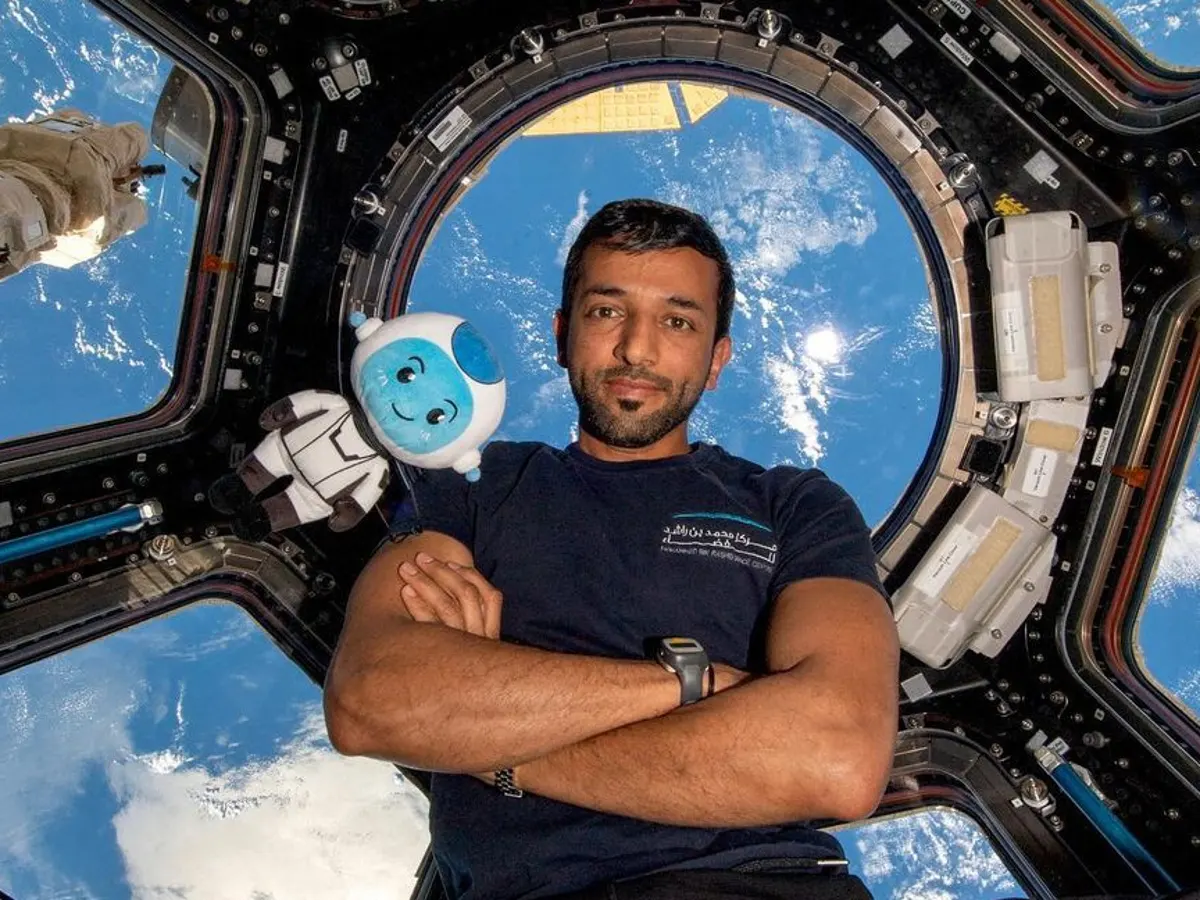Establishing a significant milestone for the United Arab Emirates' (UAE) space exploration program, Sultan Al Neyadi made history as the first Arab to serve on the International Space Station (ISS) for a remarkable six-month mission as part of Expedition 69, (the 69th long-duration expedition to the International Space Station operated by Nasa and Roscosmos) as well as the first Arab astronaut to conduct a spacewalk. His journey showcased the nation's commitment to inspiring a new generation of scientists and astronauts. Sultan Al Neyadi's influence extends beyond the stars as he serves as an emblem of the UAE's determination to be at the forefront of space exploration.

“I heard a lot of my colleagues say: ‘It’s really nice to hear a different language on the station.’” Sultan told The Guardian, which felt as a responsibility during the mission to bring a taste of Arab culture into space. More than half of the individuals who have crossed the boundary into space, totaling several hundred, have been Americans. Celestial travel has been dominated for decades by Nasa-trained astronauts or Russian cosmonauts. Currently, there are only six Arab visitors to space, now affectionately referred to as “najmanauts,” derived from the Arabic word for star, “najm.”
Sultan Al Neyadi's journey to becoming an astronaut was nothing short of remarkable. Born in 1981 in Umm Ghafa, Al Ain, Al Neyadi grew up with a passion for space and science. He obtained his bachelor's degree in Electronics and Communications Engineering from the University of Brighton in the UK, after which he pursued a career as a Network Security Engineer with the UAE Armed Forces. He furthered his education in Australia, earning his Master's degree in Information Technology (IT) from Griffith University in 2008 and subsequently receiving his PhD in IT (Data Leakage Prevention) at the same university. Beyond his achievements in the realm of space exploration, Al Neyadi is an enthusiastic practitioner of jiu-jitsu. He has participated in prestigious competitions such as the Abu Dhabi World Professional Jiu-Jitsu Championship and the President’s Jiu-Jitsu Cup in 2018. During his ISS mission, he made history by donning a jiu-jitsu gi, the traditional kimono-style attire worn by the sport’s athletes, demonstrating his commitment to the sport and its principles of discipline, focus, and adaptability.
In 2017, the Mohammed bin Rashid Space Centre (MBRSC) launched the UAE Astronaut Program, seeking to train and send the nation's first astronaut to the International Space Station (ISS). Sultan Al Neyadi, along with Hazzaa AlMansoori, was selected as one of the first two astronauts from the UAE, recognized for his exceptional mental and physical capabilities. Handpicked from over 4,000 candidates, his achievements in education, coupled with his expertise in jiu-jitsu, set him apart. The selection marked the beginning of a rigorous training process, where they had to master a variety of technical skills, adapt to the challenges of space, and understand the intricate workings of the Soyuz spacecraft.
The training took Al Neyadi to renowned space agencies, including NASA in the United States and the Russian space agency Roscosmos. He attended sessions at the Yuri Gagarin Cosmonaut Training Center in Moscow, which entailed simulations of zero-gravity, high g-forces, Soyuz spacecraft operations, ISS operations, and survival training for unexpected landing scenarios. Al Neyadi also learned Russian, the primary language of communication on the Soyuz spacecraft. Additional training took place in Houston, Texas, and Cologne, Germany through collaboration with major space agencies such as NASA, ESA, and JAXA. The comprehensive program spanned nearly five years and included over 90 courses, accumulating more than 1,400 hours of training. Al Neyadi's proficiency in using the space suit, daily tasks on the ISS, and emergency procedures proved his dedication and readiness for the challenges of space exploration.
Sultan Al Neyadi was a part of the Crew-6 team that launched from Cape Canaveral in Florida in March 2023. During Expedition 69, he achieved the remarkable feat of becoming the first Arab to undertake a spacewalk, a mission that lasted 7 hours and 1 minute, alongside Stephen Bowen, a NASA astronaut. The spacewalk involved completing vital tasks, such as routing power cables in preparation for the installation of the iROSA. “Sultan, that was an impressive fix! You have surgeons’ hands” praised the ground team overseeing operations at the Kennedy Space Center.
The 42-year-old flight engineer consistently shared video updates in Arabic on social media, offering insights into life aboard the space station. He explains the peculiarities of his daily routine, from consuming vacuum-packed space food to staying fit in a "weightless" environment using a specially designed weight-lifting device that generates its own resistance. He also celebrated the Muslim’s holy festival of Eid al-Fitr while in orbit, wearing his traditional Emirati attire. Simultaneously, Al Neyadi has offered a unique viewpoint to the global space-watching community by capturing photographs of Middle Eastern cities and renowned landmarks. Which is a region that is frequently subjected to negative stereotypes. In a post he wrote captioning a photo he took of the capital city of Iraq from space: “Here is the beautiful and historical city of Baghdad, the cornerstone of the golden age of knowledge…scholars from this great city sparked the flames of discovery, setting the course for modern science. Their legacy reminds us to keep reaching for the stars.”
Sultan Al Neyadi's journey into space has had a profound influence, both within the UAE and across the world. He has inspired countless individuals, especially the youth, to whom he embodies the possibilities of pursuing ambitious dreams and defying boundaries. His contribution has extended to educational outreach programs, through which he is actively engaging with students, schools, and universities to promote the importance of STEM education. By sharing his experiences and insights, Al Neyadi encourages young Emiratis to follow their passion for science and technology to become future scientists, engineers, and astronauts.

